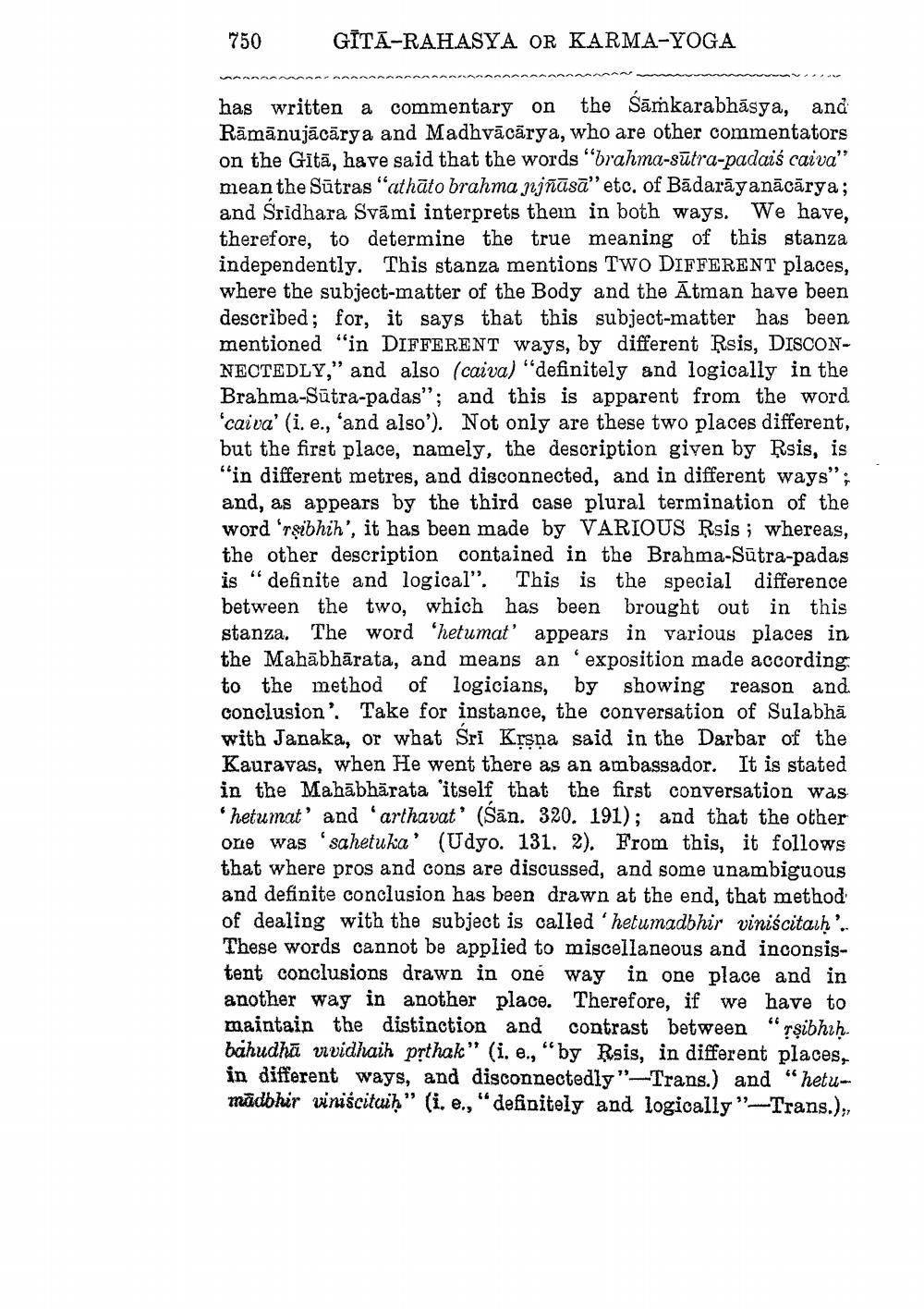________________
750
GĪTĀ-RAHASYA OR KARMA-YOGA
has written a commentary on the Sāmkarabhāsya, and Rāmānujācārya and Madhyācārya, who are other commentators on the Gitä, have said that the words "brahma-sūtra-padaiś caiva" mean the Sūtras "athāto brahma njñāsā'' etc. of Bādarāyanācārya; and Sridhara Svāmi interprets them in both ways. We have, therefore, to determine the true meaning of this stanza independently. This stanza mentions TWO DIFFERENT places, where the subject-matter of the Body and the Atman have been described; for, it says that this subject-matter has been mentioned "in DIFFERENT ways, by different Rsis, DISCONNECTEDLY," and also (caiva) "definitely and logically in the Brahma-Sūtra-padas"; and this is apparent from the word 'caiva' (i. e., 'and also'). Not only are these two places different, but the first place, namely, the description given by Rsis, is "in different metres, and disconnected, and in different ways"; and, as appears by the third case plural termination of the word 'rşibhih', it has been made by VARIOUS Rsis ; whereas, the other description contained in the Brahma-Sūtra-padas is “definite and logical”. This is the special difference between the two, which has been brought out in this stanza. The word 'hetumat' appears in various places in the Mahābhārata, and means an exposition made according to the method of logicians, by showing reason and conclusion'. Take for instance, the conversation of Sulabhā with Janaka, or what Sri Krsna said in the Darbar of the Kauravas, when He went there as an ambassador. It is stated in the Mahābhārata 'itself that the first conversation was 'hetumat' and 'arthavat' (Sān. 320. 191); and that the other one was 'sahetuka' (Udyo. 131. 2). From this, it follows that where pros and cons are discussed, and some unambiguous and definite conclusion has been drawn at the end, that method of dealing with the subject is called 'hetumadbhir viniścitaih'. These words cannot be applied to miscellaneous and inconsistent conclusions drawn in one way in one place and in another way in another place. Therefore, if we have to maintain the distinction and contrast between "rşibhihbahudhā uvidhaih prthal" (i. e., “by Rsis, in different places, in different ways, and disconnectedly"-Trans.) and "hetumadbhir viniscituih" (i. e., "definitely and logically"-Trans.),




